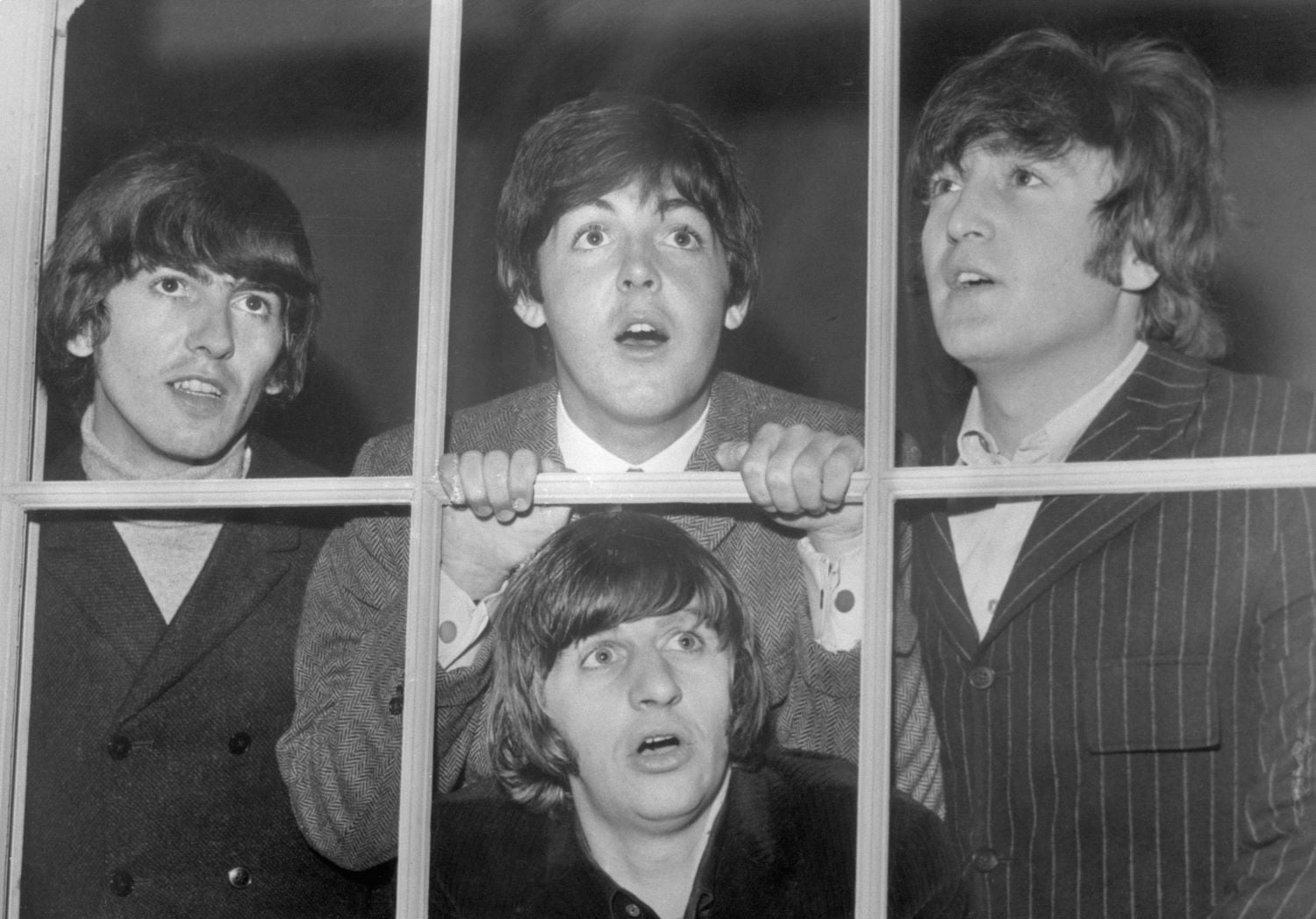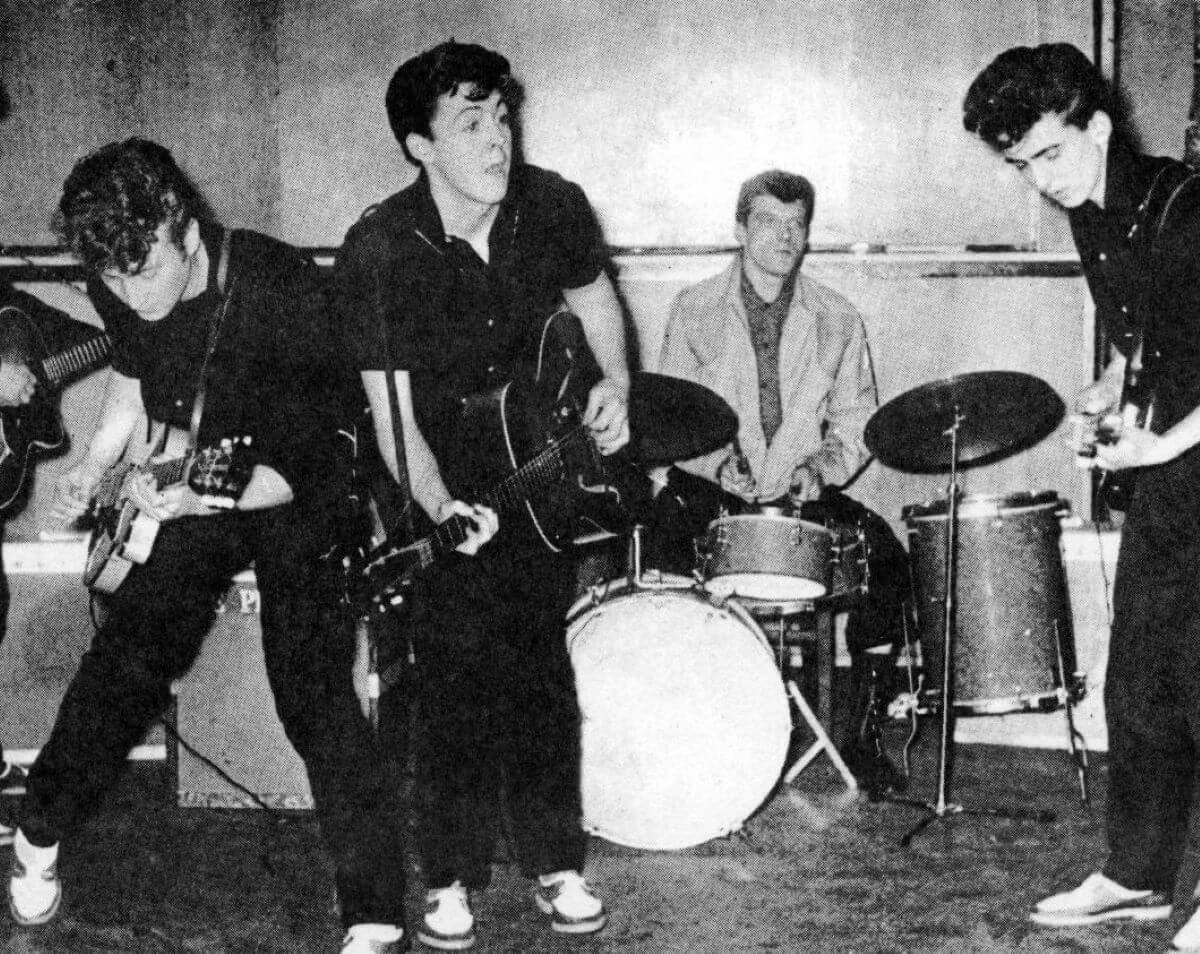
The Beatles Seemed ‘Embarrassed About How Bad They Were’ at an Audition: ‘It Felt Pretty Dismal’
By the mid-1960s, The Beatles could shake stadiums with the sound of their screaming fans, but they didn’t have quite the same effect at an early audition. The band had the opportunity to audition in front of Larry Parnes, a manager and promoter. If the audition shook out the way they wanted, they could tour with musician Billy Fury. According to those in the audience, their performance wasn’t all that impressive, and The Beatles seemed to know it.
The Beatles didn’t seem thrilled with their performance at an audition
In 1960, Parnes teamed up with Allan Williams to find a group to tour with Fury. The Beatles were amongst the Liverpool groups to audition. This was one of their biggest opportunities to date, so they bought matching outfits and brought on a new drummer, Tommy Moore, to play with them.
Unfortunately, Moore had to run out to get his drum kit and wasn’t back in time for the audition. Instead, they recruited another band’s drummer, Johnny Hutchinson, who didn’t like The Beatles and seemed visibly bored.

According to Philip Norman in the book Paul McCartney: The Life, John Lennon and Paul McCartney played with frantic energy. They were trying to make up for their other bandmates: a quiet and stone-faced George Harrison and Stuart Sutcliffe, who was so bad at bass that they had him turn his back to Parnes and Williams. Afterward, Harrison didn’t feel all that optimistic.
“It was a bit of a shambles,” he said in The Beatles Anthology. “Larry Parnes didn’t stand up saying that we were great or anything like that. It felt pretty dismal.”
Another onlooker could sense the band’s defeat. Saxophonist Howie Casey thought The Beatles were a “bum group” after the audition and was shocked to see them sound good at a later performance.
“Then, they’d seemed almost embarrassed about how bad they were,” he said. “But they’d turned into a good stomping band.”
Despite the result of the audition, The Beatles scored a win out of it
The audition wasn’t a complete disaster, though.
“They had tinny little amps that hardly made a squeak … But what sticks in my mind was Paul’s voice,” fellow musician John Gustafson said. “This pretty boy, who all the girls loved, would open his mouth and the most amazing Little Richard-type scream came out.”
Parnes agreed. While the band didn’t score the touring spot with Fury, Parnes did ask them to join musician Johnny Gentle on a week-long tour of Scotland.
“We did OK on that tour, playing church halls all over Scotland, places like Fraserburgh,” McCartney said. “It was great – we felt very professional. But we were endlessly on the phone to Larry Parnes’ office, complaining that the money hadn’t arrived.”
Harrison, ever the optimist, believed that Parnes selected them for the tour because he thought he wouldn’t have to pay.
“They were probably thinking, ‘Oh well, they’re mugs. We’ll send a band that doesn’t need paying.'”
The tour made them feel like professional musicians
McCartney was the most hesitant to go on the tour. Despite his dedication to his music career, he was supposed to be taking his GCE exams that week and skipped them.
“So here we were, suddenly with the first of Larry’s untempestuous acts and a tour of Scotland, when I should have been doing my GCE exams,” he said. “A lot of my parents’ hopes were going up the spout because I was off with these naughty boys who weren’t doing GCEs at all.”

For Harrison, though, this was the chance to finally leave schooling behind and focus on music full time.
“I remember asking my big brother, ‘Would you pack in work and have a go at this if you were me?'” Harrison recalled. “He said, ‘You might as well — you never know what might happen. And if it doesn’t work out you’re not going to lose anything.’ So I packed in my job, and joined the band full time and from then, nine-to-five never came back into my thinking.”
He never had to think about it again. Though The Beatles had a few more years to go before they hit fame, they were now speeding toward success.


